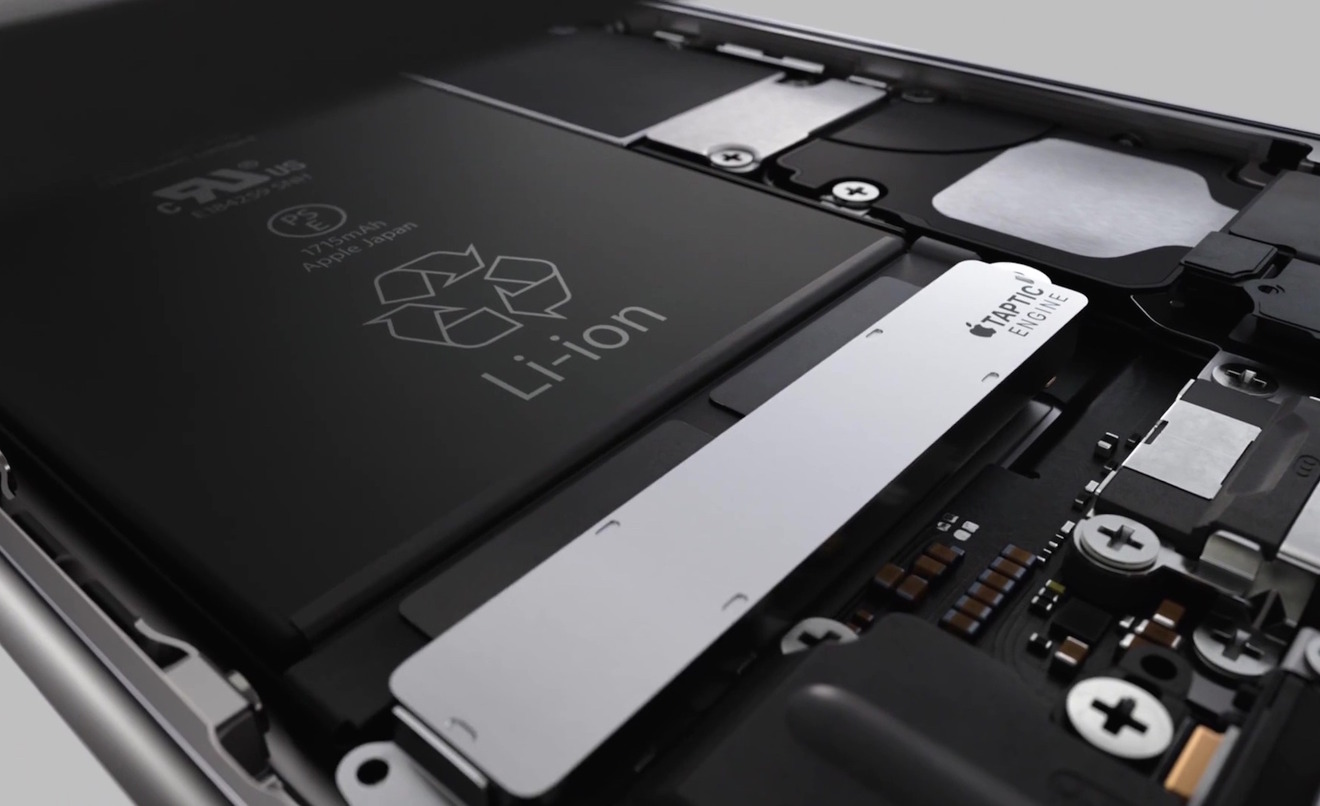A collection of 18 plaintiffs have launched a new class action through a U.S. District Court in San Jose, joining cases that have since been consolidated accusing Apple of fraudulent behavior in deliberately throttling older iPhones with weaker batteries.
The plaintiffs in this latest case are from diverse parts of the U.S. such as Alaska, Arkansas, and Pennsylvania, and in a few instances the U.K. and Japan, according to court documents. Lawyers with Levi & Korsinksky LLP have specifically charged Apple with violating the federal Computer Fraud and Abuse Act, as well as California's Unfair Competition Law, Computer Data Access and Fraud Act, and "trespass to chattels" rules.
The lawfirm is requesting a jury trial and compensation including punitive damages, attorneys' fees, and pre- and post-judgment interest.
"After years of customer frustration and attrition, on December 20, 2017, Apple admitted to one of the largest consumer frauds in history, affecting hundreds of millions of mobile devices across the globe," the suit asserts.
In April 2018, a judicial panel order the consolidation of 61 similar lawsuits. It isn't clear if this one will be grouped with others as well, as the consolidated case hasn't made significant headway in the courts.
The iPhone slowdown issue began in late 2017 when a Reddit user discovered CPU throttling after running impromptu benchmarking tests. Subsequent claims led to conspiracy theorists postulating that Apple intentionally built the feature as part of a planned obsolescence scheme, and a series of class actions and government inquiries followed.
Apple's fix was implemented in iOS 10.2.1 as a way of preventing sudden shutdowns when a chemically depleted battery wouldn't provide enough power to keep a device running — but specifically what Apple chose to do about the problem wasn't disclosed. Apple ultimately apologized to iPhone owners in December 2017 for a lack of transparency and cut prices on out-of-warranty battery replacements, later delivering software updates that expanded data and let people reduce — though not eliminate — instances of throttling.
 Roger Fingas
Roger Fingas







-m.jpg)






 Christine McKee
Christine McKee
 Malcolm Owen
Malcolm Owen

 Charles Martin
Charles Martin


 Mike Wuerthele
Mike Wuerthele


-m.jpg)






11 Comments
/s
Apple kept my old would-have-failed-intolerably phone going even longer, delaying my next mandatory purchase (Battery or phone).
Instead of a nice hand-made thank you card, I'll sue.
/s
As someone who experienced the “sudden shut down syndrome” of an older iPhone 6S with an aging battery, Apple did the right thing by slowing down phones. After all a phone is a mission critical device and having it shut down suddenly while making a call is far from ideal.
What Apple should have done is communicate the rationale for this change more effectively to its customers.
Can I sue these parasites for needlessly costing Apple money and thereby driving the price of Apple products higher?
These claimants, and their lawyers, can fuck right off. Disgusting, dishonest fucking parasites.
Because Apple was pro-active enough to take measures to stop their batteries from shutting down or exploding? Hilarious and telling how this has gotten more attention than Samsung’s exploding phones, all based on the fundamental and easily disproven lie that this was designed with malicious intent.
The Court simply needs to issue a ruling repealing the laws of chemistry. They should have that in their suit.